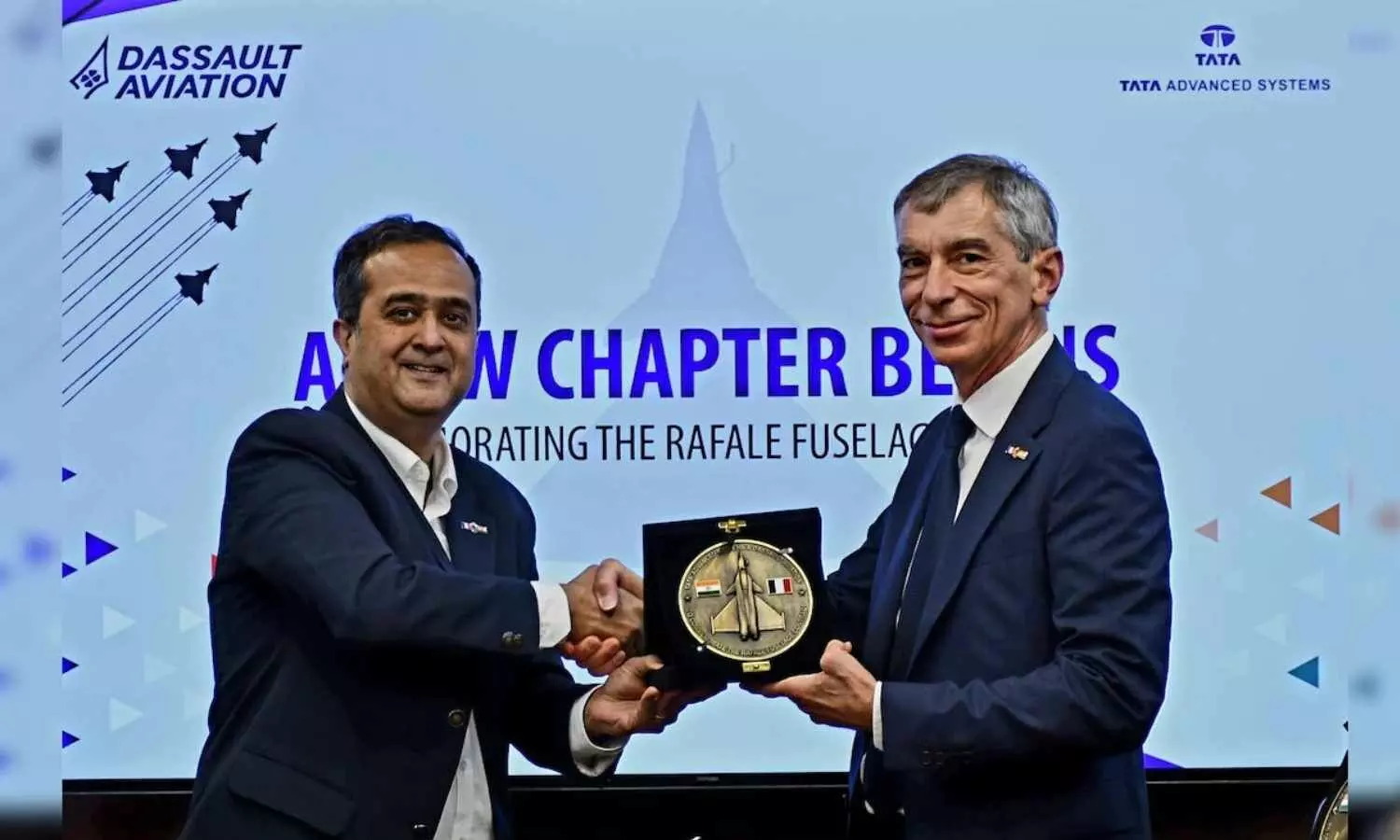Dassault and Tata to locally manufacture Rafale fuselages in Hyderabad
In a major boost to 'Make in India', the Dassault-Tata facility in Hyderabad has started manufacturing the front fuselage for Rafale fighter jets, marking a milestone in India’s defense manufacturing journey.
Dassault and Tata to locally manufacture Rafale fuselages in Hyderabad

India’s defense manufacturing ecosystem just crossed a new threshold. In a significant push to indigenize production of advanced military aircraft, a joint venture between France’s Dassault Aviation and India’s Tata Group has officially commenced production of Rafale fighter jet fuselages in Hyderabad.
This milestone marks the first time that a front fuselage of Rafale jets is being built outside France, further reinforcing India’s emergence as a strategic hub for high-precision aerospace manufacturing.
A Shift in Global Defence Supply Chain
The new facility, operated by Dassault Reliance Aerospace Ltd. (DRAL) and backed by Tata Advanced Systems, is set to play a pivotal role in not just supplying parts to global Rafale production, but also enhancing India’s self-reliance in defense tech.
Industry experts view this as a significant geopolitical and industrial shift, positioning India as a trusted partner in France’s aerospace supply chain at a time when strategic autonomy and localized manufacturing are at the forefront of national policy.
What’s Being Built?
The facility in Hyderabad has started rolling out fully assembled front fuselage sections—a highly critical component that houses the cockpit, avionics, and flight control systems of the Rafale fighter. Previously, this part was manufactured solely in France.
This shift speaks volumes about India’s growing technical and infrastructural capabilities, particularly in precision engineering, composite materials, and defence assembly protocols.
Why It Matters
Boost to 'Make in India': This development aligns with India's push for defence indigenisation under the Atmanirbhar Bharat initiative.
Global Credibility: Manufacturing a key component for a frontline European fighter aircraft adds a feather to India’s cap in the global defense arena.
Job Creation & Skill Transfer: The venture is expected to generate high-skilled jobs and enhance India’s aerospace talent pool.
Future Potential: The facility could be a stepping stone for India to become a manufacturing base for future fighter jet programs, both domestic and international.
Not Just an Assembly Line
Unlike older defence projects where India often played a minor assembly role, this operation involves end-to-end manufacturing using complex CNC machines, quality assurance systems, and strict military-grade standards—making it a cornerstone example of India graduating from offset obligations to core production.
What’s Next?
With the Hyderabad unit up and running, both Tata and Dassault may explore opportunities to expand the scope of manufacturing to other Rafale parts and potentially even participate in future joint development programs, such as India’s upcoming fifth-generation fighter projects.
Bottom Line:
The Rafale fuselage rollout from Hyderabad isn’t just about aircraft parts—it’s a symbol of India's growing stature as a serious player in global defense manufacturing. As geopolitical alignments evolve, so does the blueprint of India's strategic self-reliance.

